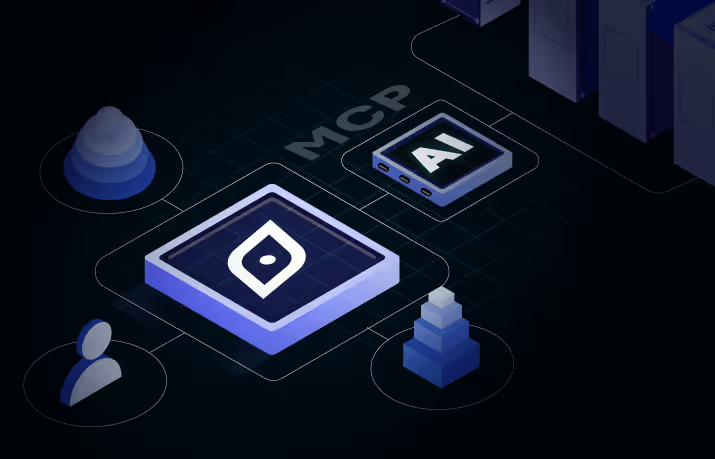Talent Intelligence for Effective Talent Management: A Comprehensive Guide
As global organizations race to integrate new technologies into their stacks, ineffective talent management systems in place are proving to be a massive roadblock for them.
The exponential talent gap, failed talent management strategies, and rising attrition rates are just the tip of the iceberg. The real issue lies in the absence of talent intelligence, which makes traditional talent management unsuitable for 2022 and beyond.
Organizations today are fighting three types of battles.
#1 Attracting and recruiting good hires.
#2 Retaining and engaging existing employees.
#3 Future-proofing their workforce against emerging technologies & skillsets.
Together, these challenges form the core of a talent war that most organizations weren’t prepared for. Winning this war requires more than conventional approaches, it demands talent and intelligence as part of every strategic initiative. Talent management teams need a robust arsenal of talent intelligence to navigate this landscape effectively.
Talent Management Challenges of Today
To create a future-proof strategy, it’s crucial to identify and categorize major talent management challenges. This enables HR teams to anticipate and eliminate roadblocks using talent intelligence as a strategic guide.
Challenges in Recruitment:
- Attracting and engaging the right candidates
- Making recruitment bias-free
- Using People Analytics and talent intelligence for data-driven hiring
Challenges in Reskilling:
- Identification of current skillsets
- Prioritization of in-demand skills
- Addressing low employee engagement with talent intelligence insights
Challenges in Workforce Planning:
- Identification of critical roles & role transitions
- Accessing critical talent data & planning career progressions
- Aligning talent strategy with business goals using talent intelligence
Rising attrition, hybrid work models, and shifting employee expectations further complicate the HR landscape. These challenges can overwhelm outdated systems. To stay competitive, HR must leverage data, and this is where talent intelligence becomes essential.
Talent intelligence is transforming the global talent landscape, driving organizations toward smarter, data-driven strategies that enable them to thrive in 2022 and beyond.
How can Talent Intelligence transform Talent Management?
In 2022, data should the priority for HR execs if they are to excel in this complex, uncertain and ambiguous market. Talent Intelligence provides us with insights into the ineffectiveness of the present-day talent management approach and helps us rework our systems.
To put it simply, “Talent intelligence refers to the process of collecting and analyzing global talent data to extract insights on various facets of talent management useful to navigate present-day talent environment”.
The insights extracted from Talent Intelligence help enterprises:
- Stay ahead of emerging labor market trends
- Make strategic decisions about talent management
- Reduce attrition rates and maximize employee satisfaction
- Identify the hiring needs of present & future.
- Diagnose talent patterns across the organization.
Let us look at how talent intelligence can help HR execs tackle the most complex talent challenges with ease.
Talent Intelligence in Recruitment
Effective recruitment is going to be an integral part of the ongoing talent war and it should be handled with care. In the last two years, the global talent ecosystem has witnessed a worldwide pandemic, the great resignation, talent shortages across industries and what not.
This has resulted in the emergence of new functions, use cases and technologies in organizations that require talent.
However, in the next few years, finding quality talent will largely depend on a recruiter’s ability to intelligently automate their workflow and unearth insights into their chosen talent pool.
Talent intelligence in recruitment helps recruiters utilize their time better, hire faster and onboard candidates and screen resumes without bias.
Here’s how Talent intelligence can transform your recruitment systems.
- Effective Sourcing: Source candidates from traditional and non-traditional sources for a diverse candidate pool.
- Candidate Persona: Match candidate intentions with business intentions and analyze compatibility.
- Diversity & Inclusion: Access a wider talent pool and hire from diverse backgrounds to power up your D&I initiatives.
- Bias-free Recruitment: Extract only relevant insights of generic nature to prevent recruitment bias and hire with fairness.
- Candidate Engagement: Engage your candidates by incorporating modern technologies backed by powerful insights.
- Onboarding Experience: Utilize analytics to craft personalised onboarding experiences that are worth remembering.
In the coming years, talent intelligence will transform the traditional recruiter role allowing for effective recruitment backed by data, that is relevant to the current talent landscape.
Talent Intelligence in Workforce Planning
With the global talent landscape shifting faster than ever, HR execs need to be prepared for any uncertain talent trends that may emerge at any time in the future.
However, most organizations today are not sufficiently informed of the current or future workforce gaps that may severely harm the execution of their business strategies.
They are stuck in a situation where having an unplanned workforce can set back their organizations by years and they do not have the means to plan their workforce independently.
Let us explore how talent intelligence can help workforce planners prepare for years ahead of competition.
- Talent Ecosystem Tracking: Leverage a 360-degree view of the talent ecosystem ranging from emerging hotspots to in-demand technologies and skills.
- Trend Prediction: Forecast and analyze talent trends before they become mainstream.
- Competitor Intelligence: Track your peers and their talent strategies to explore the best options.
- Complete Market Insights: Access global talent insights and unravel the talent scenario of today’s market.
- Diversity & Inclusion: Power up your D&I initiatives by discovering talent hotspots, candidates and skillsets.
- Cost Analysis: Analyze compensation for various roles spread across various functions and identify what suits you.
- Skills Analysis: Identify any skills gap and prepare to bridge them with reskilling (explained later).
- Career Transitions: Facilitate suitable career transitions across roles to manage your workforce easily.
With the help of talent intelligence, modern HR leaders have started to utilize global talent data, workforce metrics, and predicted trends that will facilitate workforce planning the right way.
Talent Intelligence in Reskilling
As the nature of work changes leaving many jobs obsolete, businesses have the task to develop their workforce with in-demand skills needed to stay strong in the market and ensure healthy economies.
To tackle the existing challenges of global talent shortage, companies worldwide are focusing on building their workforce with reskilling programs.
Reskilling maximizes productivity and employee satisfaction by enhancing individual employees’ ability to learn and grow with the market.
However, lack of strategic pathing also renders most L&D initiatives ineffective in the face of the talent shortage. This is where talent intelligence comes into play.
Talent intelligence in reskilling helps organisations streamline and micro-manage the entire L&D process.
Talent intelligence can help you:
- Identify & Bridge Skills Gap: Identify the right skillsets needed for your employees and prepare reskilling paths to bridge them.
- Map Macro & Micro Paths: Identify short-term and long-term career trajectories and reskilling paths to boost employee satisfaction.
- Develop Personalized Reskilling Paths: Generate reskilling paths that suit each employee and engages them for faster completion of chosen learning modules.










.svg)

















.svg)





.svg)





.svg)
